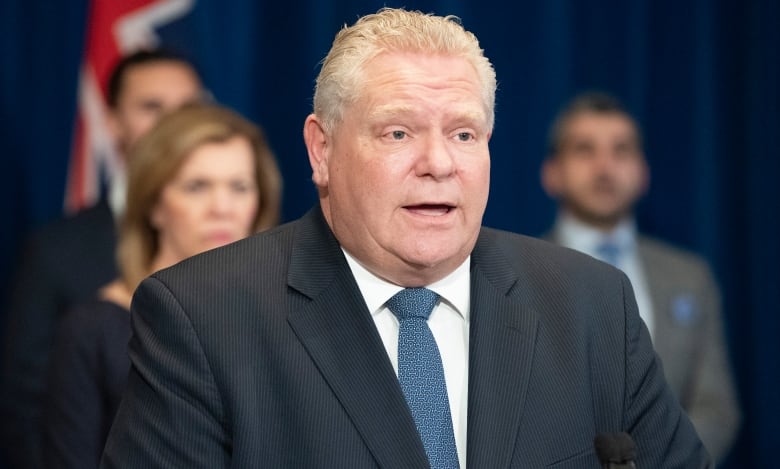Ontario sees 170 new COVID-19 cases, most in Windsor-Essex
88% of confirmed cases in Ontario now considered resolved

Ontario reported 170 new cases of COVID-19 on Thursday, with 86 of those concentrated in Windsor Essex — a result of "targeted testing of temporary workers on farms," the Minister of Health says.
At Thursday's daily COVID-19 briefing, Premier Doug Ford said a complete team from Public Health Ontario remains in the region for support. He will also be visiting the area next week.
"The farmers are cooperating, the workers are cooperating," he said.
The remaining cases were found mostly in Toronto and Peel Region, with the public health units reporting 27 and 28, respectively.
The additional cases mark a 0.3 per cent total increase, and bring the total in Ontario since the outbreak began to 36,348. A full 88 per cent of all confirmed infections of the novel coronavirus in the province are considered resolved.
Thirty of Ontario's 34 public health units confirmed five or fewer new COVID-19 cases today, and 20 of those 30 had no new cases at all, Health Minister Christine Elliott said in a series of tweets.
The number of patients in Ontario hospitals with confirmed cases of the novel coronavirus remained steady at 123. Relatedly, those being treated in intensive care units and on ventilators both decreased slightly.
The province reported another three COVID-19-linked deaths, bringing its official death toll to 2,703. But a CBC News count based on data provided directly by public health units puts the real toll at 2,742, with two new deaths confirmed today.
The province processed 26,326 tests yesterday.
Emergency orders extension
Meanwhile, Ontario has extended its emergency orders for the COVID-19 pandemic until July 22.
Premier Doug Ford said the extension of the orders will help protect vulnerable people and support frontline workers as the economy continues to re-open.
Some of the measures will make it easier for public health units to redeploy staff for contact tracing efforts and ease restrictions for staffing at long-term care homes.
The extension comes as the provincial government tabled a motion on Wednesday to extend the province's state of emergency until July 24.

The current state of emergency is set to expire July 15.
The provincial government isn't able to issue new emergency orders once the state of emergency ends, but it can extend existing orders.
Yesterday, Ford's government introduced a sweeping new piece of legislation it says will help the province's economy recover from the COVID-19 pandemic, as the province reports an additional 118 cases of the novel coronavirus on Wednesday.
The omnibus bill — dubbed the COVID-19 Recovery Act — proposes to change 20 pieces of current legislation that govern the province's schools, municipalities, and justice system, some of which opposition critics say have little to do with the pandemic itself.
Municipal Affairs Minister Steve Clark says if passed, the bill would speed up environmental assessments, offer new consumer protections and help address unemployment.
The omnibus "COVID-19 Economic Recovery Act" tabled this hour by the Ford government would change 20 different pieces of legislation, including the City of Toronto Act, the Justices of the Peace Act, and the Planning Act. <a href="https://twitter.com/hashtag/onpoli?src=hash&ref_src=twsrc%5Etfw">#onpoli</a> <a href="https://twitter.com/hashtag/COVID19Ontario?src=hash&ref_src=twsrc%5Etfw">#COVID19Ontario</a> <a href="https://t.co/Rr4G7XCK4K">pic.twitter.com/Rr4G7XCK4K</a>
—@CBCQueensParkNDP House leader Peggy Sattler said the bill is an abuse of the government's power under the current state of emergency in the province.
Meanwhile, Liberal House leader John Fraser says some parts of it, such as changes to how justices of the peace are appointed, have nothing to do with pandemic recovery.
With files from Lucas Powers and The Canadian Press